InsideIBEC issue 4 out now
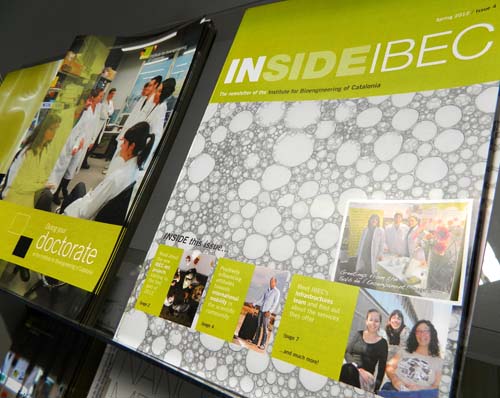 The latest edition of InsideIBEC, the newsletter of IBEC, is available now.
The latest edition of InsideIBEC, the newsletter of IBEC, is available now.
 The latest edition of InsideIBEC, the newsletter of IBEC, is available now.
The latest edition of InsideIBEC, the newsletter of IBEC, is available now.
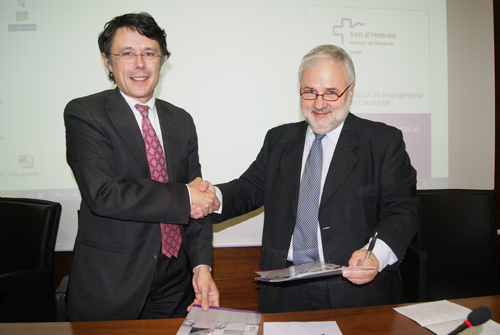 This morning IBEC signed a collaboration agreement with the Vall d’Hebron Research Institute (VHIR) in Barcelona.
This morning IBEC signed a collaboration agreement with the Vall d’Hebron Research Institute (VHIR) in Barcelona.
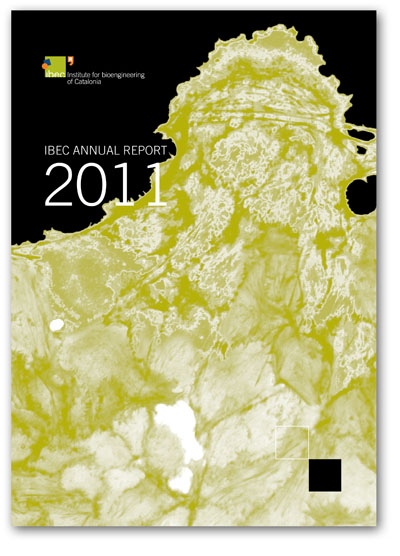 IBEC’s Annual Report 2011 (English edition) is now available, and a new section for this year is ‘scientific highlights’.
IBEC’s Annual Report 2011 (English edition) is now available, and a new section for this year is ‘scientific highlights’.
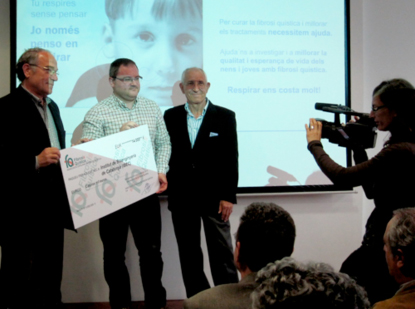 IBEC Senior Researcher Eduard Torrents participated in a conference to mark the National Day for Cystic Fibrosis last Wednesday 25 April. This event, which took place at the Spanish Society of Pneumology and Thoracic Surgery (SEPAR), also included the official presentation of funds from the Associació Catalana de Fibrosis Quística (Catalan Association of Cystic Fibrosis) to research groups specializing in the disease.
IBEC Senior Researcher Eduard Torrents participated in a conference to mark the National Day for Cystic Fibrosis last Wednesday 25 April. This event, which took place at the Spanish Society of Pneumology and Thoracic Surgery (SEPAR), also included the official presentation of funds from the Associació Catalana de Fibrosis Quística (Catalan Association of Cystic Fibrosis) to research groups specializing in the disease.
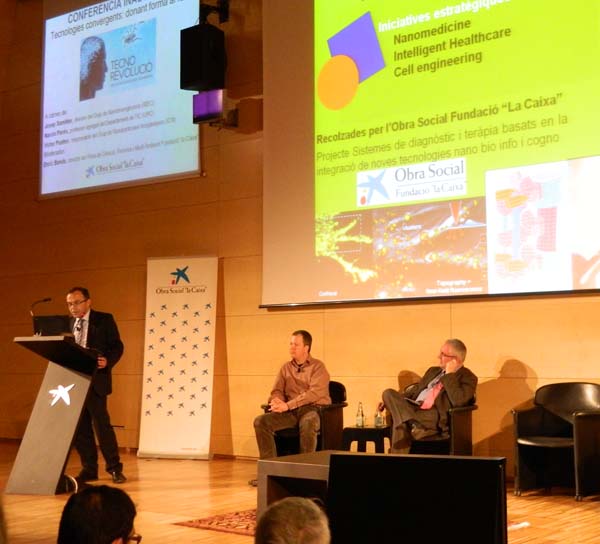 IBEC associate director Josep Samitier officially opened the Tecnorrevolución exhibition at Barcelona’s CosmoCaixa museum last night.
IBEC associate director Josep Samitier officially opened the Tecnorrevolución exhibition at Barcelona’s CosmoCaixa museum last night.
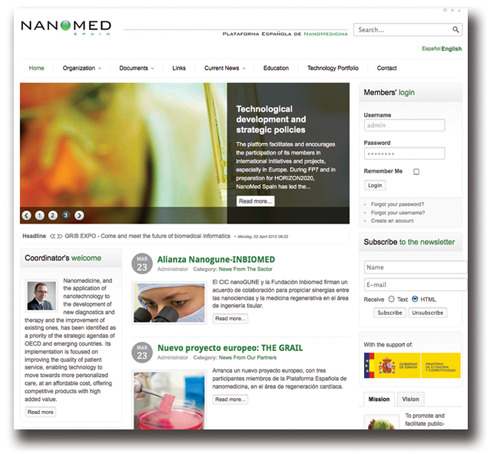 Don’t miss NanoMed Spain’s new and improved website at www.nanomedspain.net, which now offers extra features including a monthly newsletter that users may subscribe to, an RSS feed of news and events and a link to the platform’s new Twitter account (https://twitter.com/#!/NanomedSpain).
Don’t miss NanoMed Spain’s new and improved website at www.nanomedspain.net, which now offers extra features including a monthly newsletter that users may subscribe to, an RSS feed of news and events and a link to the platform’s new Twitter account (https://twitter.com/#!/NanomedSpain).
A project involving IBEC through its affiliation with CIBERNED has been approved by the EU for funding.
IBEC’s Nanoscale Bioelectrical Characterization group, headed by Gabriel Gomila, is a partner in a new EU-funded collaborative project set to develop a new tool for non-destructive 3D nanoscale structural characterization, the Volumetric Scanning Microwave Microscope (VSMM).
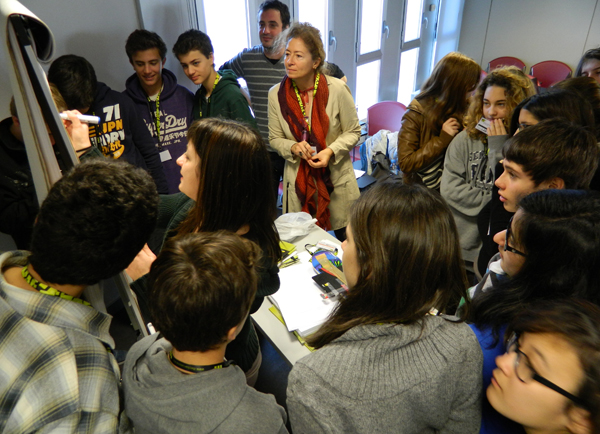 Last week, IBEC welcomed a group of third year E.S.O. students from the Oak House School in Barcelona, who were taking part in the ESCOLAB initiative of the City Council of Barcelona.
Last week, IBEC welcomed a group of third year E.S.O. students from the Oak House School in Barcelona, who were taking part in the ESCOLAB initiative of the City Council of Barcelona.